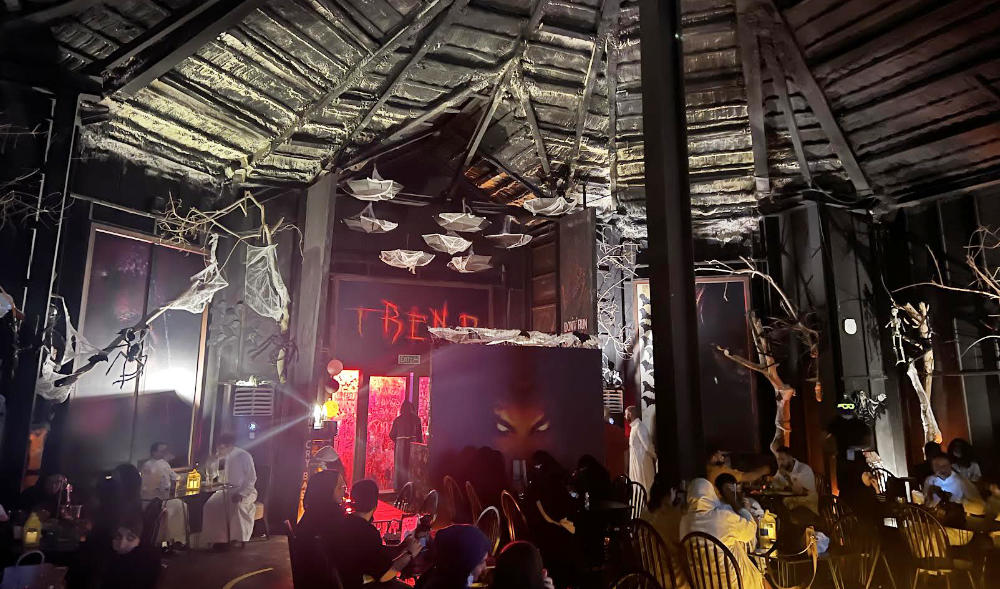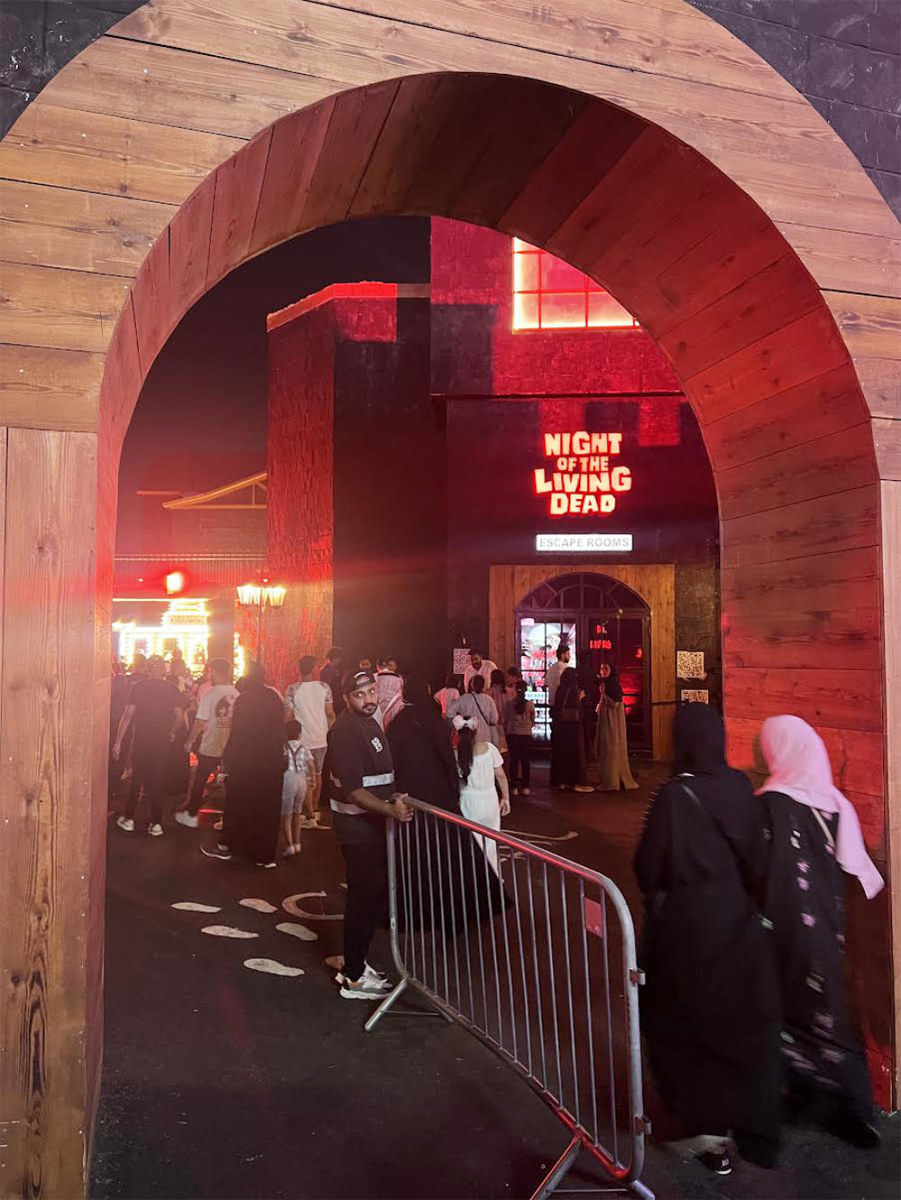JEDDAH: Ghouls, ghosts and other creepy creatures have been shocking visitors at Horror Village in Jeddah Season’s City Walk zone.
The village promises to transport visitors to a haunted world packed with frights and fun around every corner.
The guests are first treated to a spine-chilling experience with the night of the living dead escape room. There are three escape rooms that accommodate six people who are locked up to solve a series of horror-themed puzzles. The only way out is to piece together the intricate clues to escape before time expires.
But once they are freed, the thrills continue. Being admitted to the horror hospital will make your heart pound and send chills down your body, leaving some visitors shaking like a leaf.
HIGHLIGHT
The guests are first treated to a spine-chilling experience with the night of the living dead escape room. There are three escape rooms that accommodate six people who are locked up to solve a series of horror- themed puzzles. The only way out is to piece together the intricate clues to escape before time expires.
People can experience terror with all five senses by walking through a terrifying maze set in a spooky, dim hospital. It can take up to 10 minutes to reach the end, but you will scramble for a faster finish while you are hunted down by bloody ghosts and surrounded by menacing screams.
Alaa Omar Bahattab, zone manager, said that the horror house receives around 1,500 people per day and during the weekend it is extremely crowded.
He said: “Overcoming fears, experiencing adrenaline rush make the haunted house attractive and makes people really come back for it. The village varies in scare intensity from the child-friendly mellowness to the 18-plus activities which are geared towards teenagers and young adults.”
For the kids, the village presents four different activities: a VR experience, a small maze with friendly ghosts hiding in it, a slime area and two theaters featuring child-friendly scary movies.
Bahattab mentioned that this area is specially designed for parents who want to have fun in the escape room and the horror hospital and can keep their kids entertained without any stress. The kids’ drop-off play area has well-trained staff who ensure the children are safe and smiling throughout.
In addition to the activities, the village features a haunted parade and a zombie flash mob that will leave guests with unforgettable memories.
There is also a horror-themed restaurant that offers a unique dining experience, where visitors can enjoy spooky entertainment with their meal.
Tuck into your zombie beef slider, zombie face cake, vampire blood juice, mojito zombie blood and other spooky treats.
The village is now gearing up to offer a frightening makeup stall to craft some of the creepy characters on the guests and another exciting scary zone.




























